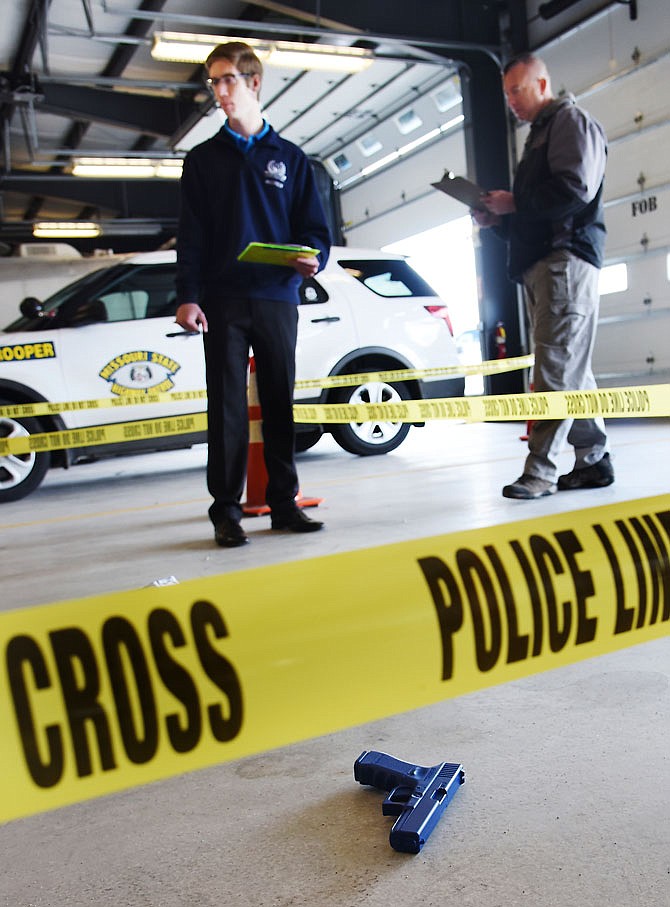Do you think police officers in Missouri receive enough basic training? Take our reader poll at the bottom of the story.
De-escalation, racial profiling, use of force, community engagement, reporting fellow officers' misconduct, reducing violent crime and recognizing implicit bias were among the top subjects in comments from law enforcement received by Missouri's public body in charge of the minimum standards for law enforcement training in the state.
The Missouri Peace Officers Standards and Training Commission conducted a survey of law enforcement Aug. 17-24, and the commission on Wednesday discussed the 468 survey responses returned.
The POST Commission's duties and powers include establishing minimum standards for basic law enforcement training, setting the minimum number of hours for basic training, establishing continuing education requirements, establishing minimum standards for law enforcement training instructor; and advising the Missouri Department of Public Safety director on law enforcement standards and training.
Widespread protests following the May death of George Floyd, a Black man, in Minneapolis under the knee of a white officer - and the legislative discussions across the country about police reform and accountability that followed - led the POST Commission to schedule surveys and listening sessions to hear what law enforcement and the public have to say about training and law enforcement in general.
Wednesday's virtual discussion among POST commissioners about the law enforcement survey responses received was a first opportunity for discussion, Public Safety Director Sandra Karsten said.
The commission did not take any action Wednesday.
Much of the discussion among commissioners Wednesday was about the quality of training law enforcement officers receive - vetting online training and also encouraging in-person training.
Commissioner John Worden, who is chief executive officer of a training academy in Columbia, said law enforcement is about doing and learning through doing. Worden said de-escalation is ultimately about great communication skills, and "I think that the only way you get better at communication skills is actually doing it."
Commissioner Gary Hill, who is chief of the Lincoln University Police Department in Jefferson City, said practical training should incorporate diverse role players from communities - actors who can help training get through more to cadets instead of when they play out scenarios with fellow cadets.
Commissioners also discussed how online training programs need to be vetted - to make sure they have features such as inactivity timeouts, randomly-timed pop-up questions and the inability to fast-forward, to make sure trainees are actually listening.
There also seems to be consensus among POST commissioners that law enforcement should be trained in the history of the profession and its relationship with the Black community especially.
Commissioner Emanuel Cleaver III, who is pastor of a Kansas City church, said "somehow we need to foster - build bridges, better relationships," and a lot of that starts with implicit bias or diversity training.
The POST Commission will begin next week to discuss what the public is looking for in law enforcement training requirements and discipline.
A public survey was conducted Aug. 18-26, and the responses will be discussed at 2 p.m. Monday and Wednesday.
Two phone lines for those virtual discussions have been set up to handle a total of up to 1,000 listeners, though comments during the sessions will have to be made to an email address to be provided at the beginning of each session, according to a news release from the Public Safety Department. A WebEx link is also being provided for people to listen on their computers.
The phone numbers and access codes for calling in to listen and the websites and event passwords for the WebEx option are available at dps.mo.gov/news/newsitem/uuid/f3ab4521-3424-4315-b832-f9b97d75f79c.

